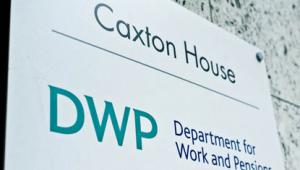Social Enterprise UK found that only 33% councils in England regularly consider social value in their procurement and commissioning. This is despite the Public Services (Social Value Act) placing a duty on public bodies in England and Wales to consider how the services they commission and procure might improve the economic, social and environmental wellbeing of the area.
Today’s Procuring for Good report also found that a quarter (24%) of councils have a social value policy, with smaller district councils less likely to consider social value than larger councils. The figures were compiled from 353 freedom of information requests to English councils between February and April, to which 306 replied.
Social Enterprise UK chief executive Peter Holbrook said the analysis showed that, where the will exists, councils in England are using the Act to embed social value into the way they commission services.
For around one in seven authorities (14%), this includes going beyond its obligations to consider social value in contracts above £164,176 (the €209,000 at which local authorities have to open up tenders through the Official Journal of the European Union) in order to help add value in their communities through securing apprenticeships and other social outcomes.
However, he added that too many councils still viewed the legislation as a duty rather than an opportunity.
“The Act has been in force for more than three years but is not empowering local authorities in the way it could be, to the detriment of our communities,” Holbrook said.
“Legislative change is needed – the Act lacks teeth and simply asking public sector bodies to consider the creation of social value when commissioning services is not enough.”
Chris White, the MP who tabled the Public Services (Social Value) Act as a Private Members’ Bill and steered it onto the statute book, said it was now clear for the first time how embedded social value was within local government.
“Despite substantial progress, there is still a way to go before all councils are making full use of the changes to commissioning that the Act makes possible,” he added.
Responding to the report, Neil Clarke, the chair of the District Councils’ Network, said many made use of the procurement function as a means of boosting their local economy and, supporting local suppliers.
“Many district councils have also pioneered procurement excellence in their areas, clustering together to drive economies of scale at the right level, through joint-purchasing arrangements and shared-service procurement initiatives that deliver excellent value for money for the taxpayer,” he added.
“It is good to see that the report has recognised the excellent work of a number of districts in employing the Social Value Act to its full potential. While we recognise that some district councils could do more, we must ensure that the conditions of the Act remain proportionate to ensure that districts can continue to deliver their procurement practices in the most efficient way so that they can continue to deliver those local services that residents and businesses value the most.”












